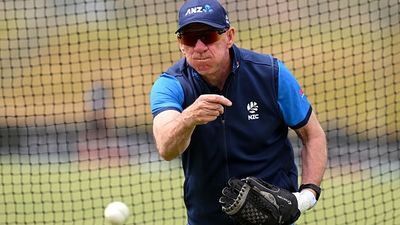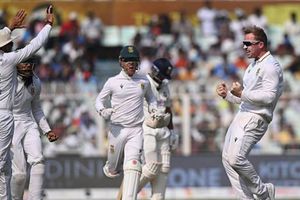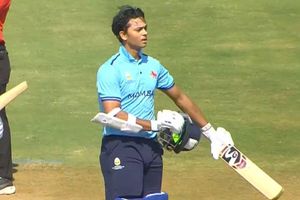Former White Ferns’ head coach Bob Carter has decided to step away from his role as New Zealand Cricket's (NZC) high-performance coach. With this decision, 21-year-long illustrious career came to a halt. Carter played a central role in the development of both the men's and women's national sides.
"I feel like I've lived the dream. I've very much enjoyed offering support and contributing and, if that's helped players or teams go on and achieve success, then that's terrific - I'm delighted. But I think what's worked best at NZC has been the combinations, the teamwork, and the cooperation," Carter said in an NZC statement.
New Zealand's Bob Carter parts ways with New Zealand's high-performance coach
The 65-year-old, who was Born in Norfolk, England, where he played a total of 65 first-class, and 55 List A matches for Northamptonshire and Canterbury County before shifting his focus onto the coaching. He first joined the New Zealand men's set-up in 2004 as a deputy to John Bracewell, where Carter served for five years. He then returned to the role from 2012 to 2014 under Mike Hesson, before succeeding his tenure to Haidee Tiffen as New Zealand Women's head coach in 2019.
Carter led the White Ferns in a couple of ICC tournaments, first the 2020 T20 World Cup and then the 2022 ODI World Cup on home soil, stepping down later that year but continuing in the high-performance role.
"We've been able to create sides that have been greater than the sum of their parts, and that's a key ingredient in team sport," said Carter, who will continue working in cricket as an independent contractor. Sure, the individual performance is important, but it's the collective that has the greater potential. That's where the magic is," he added.
"It's true that the game has evolved a great deal over the past 20 years. But the basics and fundamentals of batting and bowling have never really changed. Sure, the batters are playing shots we wouldn't have dreamed of in the nineties, and the bowlers are producing options and change-ups with an incredible degree of difficulty. But within all that, the framework that allows the players to execute so successfully is still the same as it was 50 years ago," Carter reflected.
"Our domestic cricket is very strong. I'm not sure that's widely recognised. The reason the Black Caps have continued to produce great batters and bowlers is because we have a strong, underlying domestic system. The White Ferns have been in transition over the past couple of years, but the domestic competitions have brought new players through and invigorated the established ones," he concluded
ADVERTISEMENT










